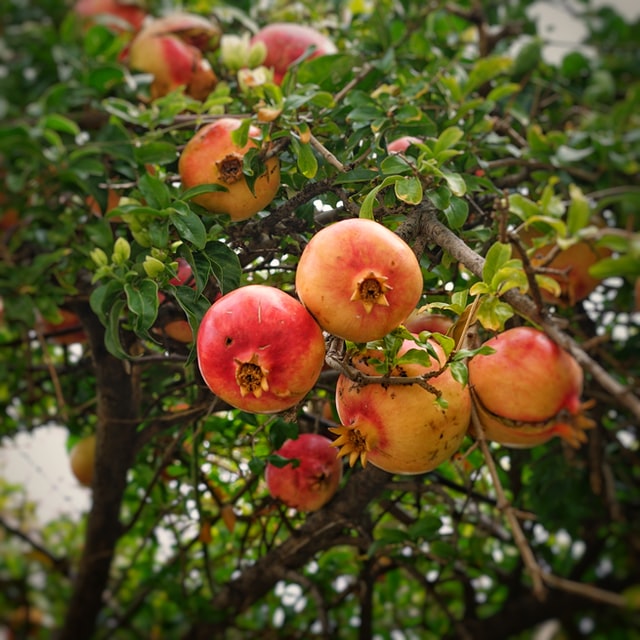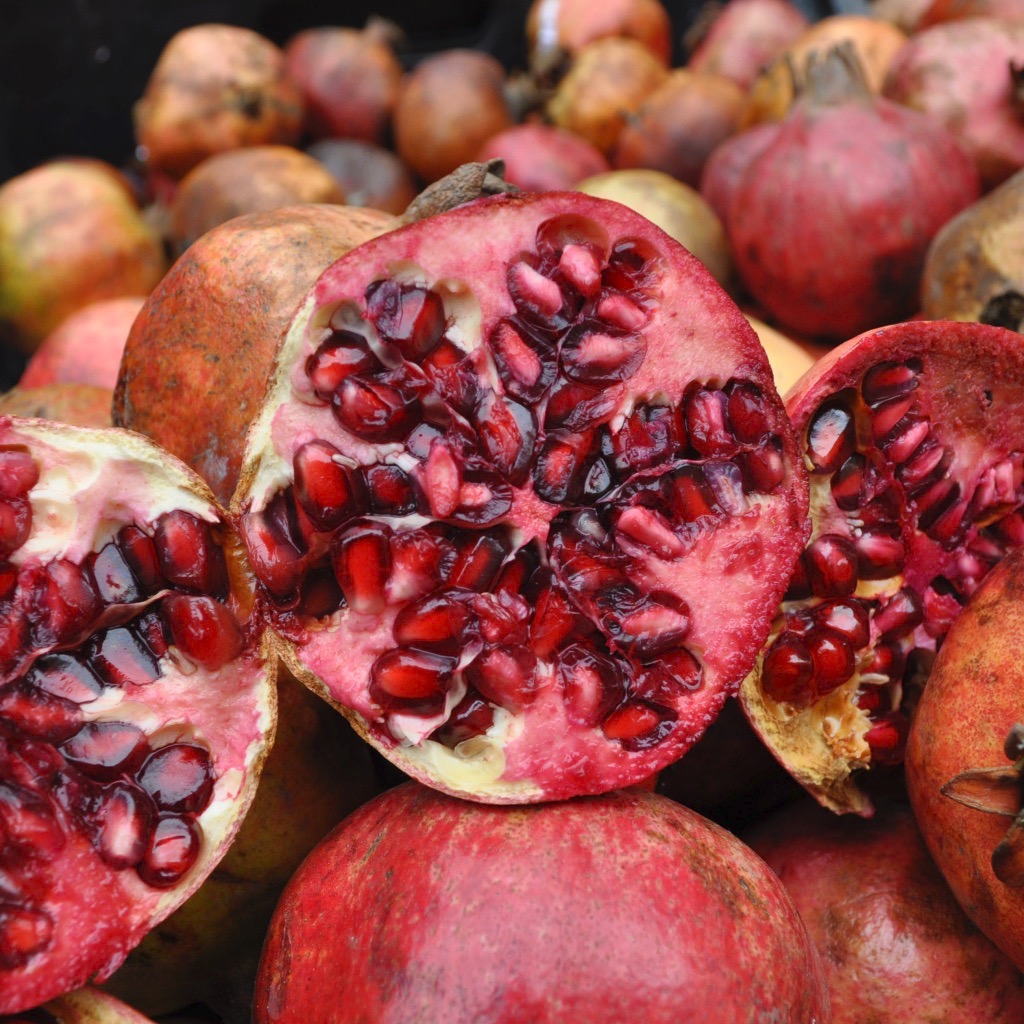Güler Orgun is from Istanbul. At 85 year old, she has now retired from the poultry business. “We had lots of fruit trees (in our farm in Polonezkoy), cherries, apples, pears, figs, peaches, plums, quince, mulberries, walnuts – and one pomegranate tree”. She tells me that the agranada or mangrana (pomegranate in Judeo-Spanish, or Ladino) reminds the Sephardic Jews from Turkey to love and respect nature.
“It is mentioned (in the Jewish bible) that one must not eat the fruit of a tree for three years after it was planted, that the four year-old fruits of a tree are regarded as sacred, and that fruit trees must not be destroyed during war.” Sephardic Jews who immigrated to different countries from the Ottoman Empire and today’s Turkey regard them as symbols of fertility and prosperity. “Each pomegranate seed is used as a metaphor for the requirement of an endless friendship and collaboration between humans instead of jealousy and badness.”
Agranada comes from the Greek word for field and soil – agros and the Latin word for seed – granum. The word alludes to our necessity of raising crops – to feed ourselves. Mano is the female Latin word for hand, and when it is attached to the Latin word granum, we are invited to visualise: feminine, prosperous, generous; mangrana = ‘seeded hand’. This Ladino feminine word agranada or mangrana says nature is like a mother, feeding her offspring.
The Ladino language was developed as the Spanish Jews, expelled after the 1492 Inquisition, brought Spanish spoken in the Middle Ages to the countries they immigrated to, especially around the Mediterranean; mixing it with their own Hebrew terms. As they became established, more Ottoman Turkish words from the welcoming countries entered their vocabulary, as well as from Italian, French and Greek. The penetration of these three languages, as well as Latin, was due to education and social and trade relations prevalent at the time.
“On Rosh Hashanah (the Jewish New Year) Turkish Sephardim pray: “ke pujemos komo los granos de la agranada…” (may we be like the seeds of the pomegranate)”. The number of pomegranate seeds is believed to be equal to the number of commandments in the Law of Moses – 613. “Some of us believe that breaking a pomegranate on the floor and dividing it into two parts in a new house brings luck into that new place where they will live.”
But luck is not necessarily what the world’s pomegranate farmers are feeling today. Land desertification and degradation is threatening the century-long cultivation of this ‘superfood’ in war-torn Afghanistan, and the threat is not coming from the battlefield. Since 1978, the arable area for farming in Afghanistan has declined by about 60 percent, leaving very little suitable for farming.
And it does not stop there: water deficit due to climate change will eventually affect the productivity of pomegranate farming, despite the durability of crops on arid land in places like the Himalayas. There, farmers switched to pomegranate farming from more water-hungry crops as the shortfall of rain and snow and increase in temperatures made their mark.
Güler finishes with a Turkish Sephardic idiom: “Avrirse komo la mangrana means to open oneself like a pomegranate, and thus to provide many opportunities (of) health, wealth and beauty…. Those who speak Ladino in Turkey today are based mainly in Istanbul and Izmir, and are over sixty years old. Over Rosh Hashanah they teach that pomegranates can be regarded as metaphors for the need of unity of compassionate humans and prosperity among Turkish Sephardim.”




